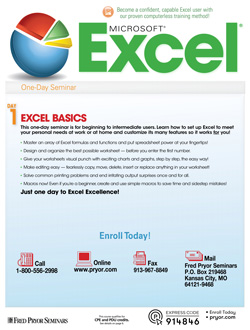Category: Professional Development
Ergonomic Engineering: What Managers Can Do
Many supervisors and managers recognize the benefits of ergonomic workplaces and workspaces, but feel lost about what they can do, particularly when it involves physical investments. Here are some ideas that can go a long way in helping your employees — it often just takes a manager to advocate on…
Read More
Change Management for a Healthier You – Incorporating Ergonomics in the Workplace
I have a wonderful employee — Renée. Renée is bright, talented, driven and very aware of ergonomic design, given her recent surgery to address joint problems. A few months ago, after completing an ergonomic evaluation, Renée installed a piece of software that alerts her when it is time to take…
Read More
Goal Setting Activities: From Process to Product to Outcome
One challenge in creating goals is defining what the goal is. We generally have some sense that a goal is a future state or milestone, associated with some good thing. How do we translate that into goal statements that are specific, measurable, achievable, realistic and timely? Here’s an example. The…
Read More
Reflecting on Resolutions: How to Achieve Your Goals
New Year’s resolutions are – for many – a repeated annual ritual. This year, let’s pause for a process check. How many of those resolutions have you achieved? If you can look back on past years and name the resolutions you have successfully completed, then good for you! For many…
Read More
A Goal Setting Worksheet: 9 Critical Questions
Checklists are wonderful tools for systematically completing tasks. Filling out a familiar worksheet or answering a series of repeated questions helps train our mind to anticipate the process, making intimidating tasks more accessible. With that in mind, here are 9 critical questions to help you with achieving goals. What’s the…
Read More
How to Say It: Phrases for a Performance Appraisal
Performance appraisals can create stress for supervisors, particularly when you need to provide corrective feedback. Even the most experienced managers can find themselves at a loss for words during the conversation. Here are some phrases to help engage the employee in a two-way dialogue. “The ABC Project was a key…
Read More
Performance Appraisals: Preparing to Give and Receive
At their best, performance appraisals should be a two-way dialogue between the rater (often the supervisor) and the receiver (the employee). Here are some tips for both the giver and receiver of performance appraisal feedback. Giving: Be prepared and anticipate possible responses. Ideally, you have been keeping notes over the…
Read More
The First Rule of Appraisals: No Surprises
Samantha and James ran into each other in the break room and began discussing their upcoming employee review. James is feeling a great deal of stress because he has a lot of uncertainties. Samantha is looking forward to meeting with her supervisor and getting a chance to discuss her future…
Read More
External Leadership for Teams
When we talk about teamwork, we often focus on internal dynamics: goal setting, communication, leadership and process. It is equally important, however, to build team skills in political savvy and external awareness. These skills help the team scan their environment for new information, and prepare key stakeholders for future steps…
Read More
6 Ways to Be More Productive
The best way to manage our time in the workplace isn't necessarily to have a more comprehensive schedule, but instead to have a smarter schedule. The real trick is to make sure you have the energy and attention to deal with all your tasks. Here are some tips to help…
Read More


